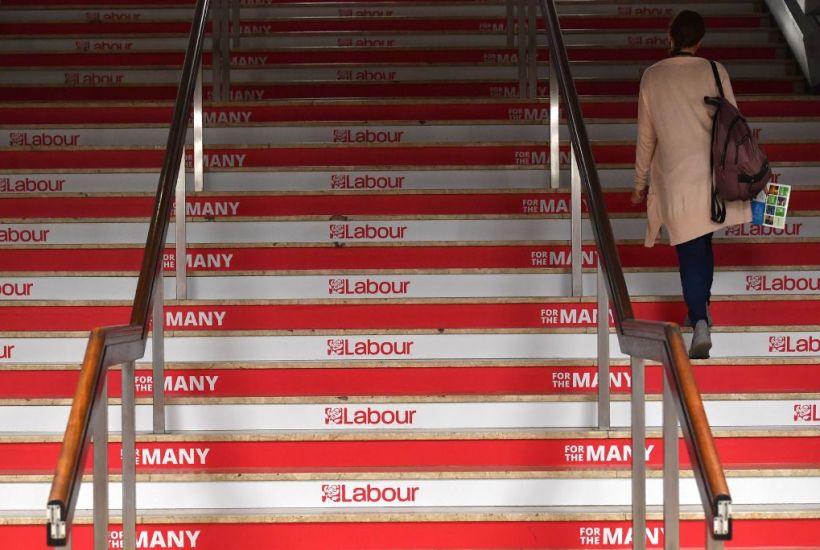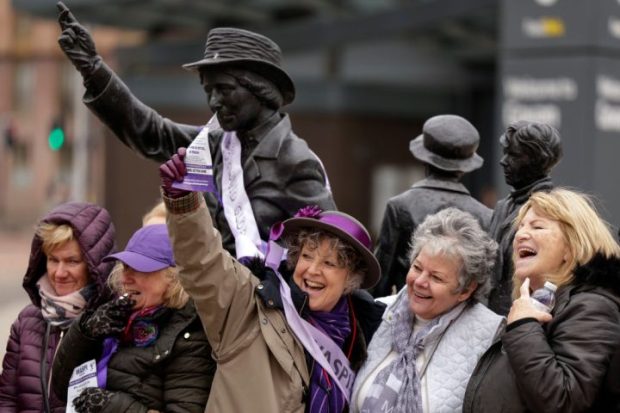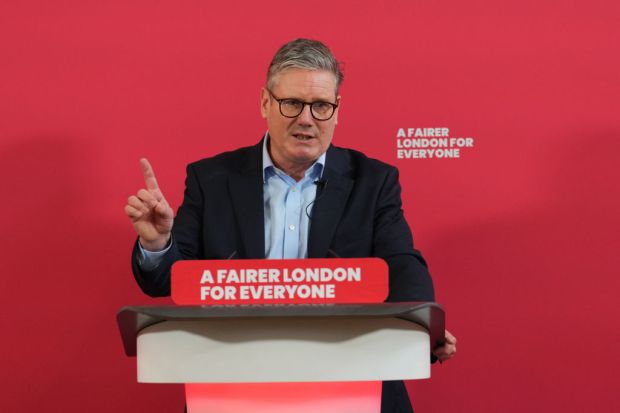I was pleasantly surprised when I read Labour’s manifesto. Not only did the party promise to end ‘mixed-sex wards’ in hospitals but they also vowed to “ensure that the single-sex-based exemptions contained in the Equality Act 2010 are understood and fully enforced in service provision.”
Soon after the manifesto was published yesterday, a number of feminists tweeted relief and praise about the pledge. It marked a significant shift from Labour’s 2017 manifesto in which the party promised to: ‘…reform the Gender Recognition Act and the Equality Act 2010 to ensure they protect Trans people by changing the protected characteristic of ‘gender assignment’ to ‘gender identity’ and remove other outdated language such as ‘transsexual.’”
Many of us had been concerned about the erosion of women and girls’ sex-based rights at the hands of the trans Taliban, engineered by Stonewall and supported by Labour shadow women and equalities (sic) secretary Dawn Butler.
I was wondering how it had turned around from a proposal to completely eradicate our rights to a promise to uphold and even strengthen them. And then Dawn Butler and her Momentum pals began to tweet their own version of reality. This was done, I assume, either in an attempt to pacify the mob, or even worse, to pressure the party into doing something they have not officially committed to.
First up, Dawn Butler tweeted that:
“UK Labour will reform the GRA to introduce self-declaration for trans people. We will remove outdated language from the Equalities Act. And there is no way spaces will be permitted to discriminate against trans people. That is illegal and it will stay illegal.”
Labour activist Ellie Mae O’Hagan then claimed that Butler’s rewrite is the Labour party “official position”, suggesting that the Equality Act is illegal.
Butler had told Pink News two days ago that the Equality Act would be updated to change gender reassignment to gender identity. O’Hagan seems to say the same. So what’s going on? Are they telling the truth? Or are they hoping that the rest of the party will cave in?
Let’s have a look at what the Equality Act actually says. It is clear that it prohibits discrimination of grounds of gender reassignment, meaning that if someone has a Gender Recognition Certificate they must be legally treated as a woman.
However, there are a series of exemptions set out in the EA with regard to the protected characteristic of biological sex (as opposed to gender identity) which make it permissible in some limited circumstances to exclude those even with a GRC. These include a counsellor working with rape victims; in sport, the EA recognises ‘gender affected activity’ and permits discrimination against transsexual people for the purposes of fair competition or the safety of competitors, recognising differences in physical strength, stamina or physique; and in the provision of single-sex services such as refuge space for domestic violence victims; and communal accommodation, for example women’s hostels or prisons.
If the EA was reformed in the way Butler wishes it to be, it could mean that any man wishing to identify as a woman, regardless of whether or not he is genuinely gender dysphoric or has undergone any treatment whatsoever, could get access to women-only safe spaces, such as refuges, rape counselling services, and if challenged could invoke hate crime legislation against those either questioning, complaining or seeking to exclude on the basis that he is male.
In a prison context, there is already evidence that violent and predatory male sexual offenders are jumping on the bandwagon to be moved to women’s prisons. Women are terrified. Many have been victims of intimidation and assault; the female prison population is known to be disproportionately affected by experiences of childhood sexual abuse, rape and domestic violence.
One person close to the Labour party told me:
“This is now a matter of frontbenchers and senior staff over-riding the decision of the party at Clause 5. Unprecedented, in my view. If they can do it on this, they can do it on anything and there’s no point in having a democratic policy formulation process.”
Another suggested that neither Corbyn or Butler really understand either the issues or the implications, saying that:
“Neither the top brass nor the likes of Butler understood what they were agreeing when they overruled the 2017 manifesto on sex-based rights, and now she and her Momentum mates are trying to override it because Butler has been called out by trans-activists. She can’t think in two dimensions, and is very opportunist, playing to a crowd.”
A third Labour party insider told me:
“If the Labour party end up backtracking on the current manifesto, things can only get worse for them. They can’t rewrite it, but certain individuals are desperately trying to re-spin it. They could shelve and therefore drop the single sex exemption if elected, which would be a disgrace. There is a war going on in the Labour party on Self-ID and women’ rights, and we won the battle on the wording of this manifesto, but we could still lose the war on democracy.”
As I write this, Labour press office has issued a statement which is supposedly clarifying its position on the GRA:
“Our commitment to reforming the Gender Recognition Act to introduce self-declaration for transgender people is undimmed. Labour will amend the Equality Act 2010 to ensure it protects trans people by changing the protected characteristic of ‘gender assignment’ to ‘gender identity‘ and removing other outdated language such as ‘transsexual’.”
However, in an Orwellian twist, Labour press office then began to retweet Dawn Butler’s misinterpretation.
In the world of Dawn Butler and her comrades, women’s sex-based rights are apparently nothing but a transphobic dog whistle. Unfortunately, it is clear that I was correct when I predicted back in 2004, when trans rights activists first came after me, that they will stop at nothing less than completely removing women’s legal rights.
Got something to add? Join the discussion and comment below.
Get 10 issues for just $10
Subscribe to The Spectator Australia today for the next 10 magazine issues, plus full online access, for just $10.




















Comments
Don't miss out
Join the conversation with other Spectator Australia readers. Subscribe to leave a comment.
SUBSCRIBEAlready a subscriber? Log in